4-Aminophenol
Synonym(s):4-Aminophenol;4-Hydroxyaniline
- CAS NO.:123-30-8
- Empirical Formula: C6H7NO
- Molecular Weight: 109.13
- MDL number: MFCD00007869
- EINECS: 204-616-2
- SAFETY DATA SHEET (SDS)
- Update Date: 2025-12-17 09:49:53

What is 4-Aminophenol?
Description
4-Aminophenol, also known as 4-hydroxyaniline, is an organic building block. Its quantification in water samples upto the detection limit of 8×10-10mol l-1 has been proposed by employing single-wall carbon nanotubes (SWNT)-nafion film coated glassy carbon electrodes. It is present as the main contaminant in pharmaceutical formulations of paracetamol. High-performance liquid chromatographic (HPLC) method with amperometric detection has been reported for its determination in various analgesic formulations. It has been reported to be formed from the reduction of 4-nitrophenol (Nip) under metal-free conditions catalyzed by N-doped graphene (NG).
Chemical properties
o-Aminophenol appears as colorless needles or as white crystalline substance turning tan to brown on exposure to air. slightly soluble in water and ethanol, insoluble in benzene and chloroform, and quickly turns brown when dissolved in lye.
The Uses of 4-Aminophenol
4-Aminophenol is suitable for use in the synthesis of 2,2-bis(4-aminophenoxy) benzonitrile [4-APBN], a monomer required for the preparation of series of polyamides and poly(amide-imide)s. It may be used as derivatization reagent to improve the ionization of aliphatic and aromatic aldehydes by paper spray ionization mass spectrometry.
Definition
ChEBI: 4-aminophenol is an amino phenol (one of the three possible isomers) which has the single amino substituent located para to the phenolic -OH group. It has a role as a metabolite and an allergen.
What are the applications of Application
The main and the most significant use of 4-Aminophenol is for the manufacturing of Paracetamol, an analgesic and antipyretic drug. In addition to paracetamol, it is a key element in the synthesis of pharmaceutical ingredients and important industrial chemicals like Acebutolol, Ambroxol, Sorafenib and so on.
4-Aminophenol is used as a dye for textiles, hair, furs and feathers, and is also used as a developing agent in photography for creating black and white images. It acts as a corrosion inhibitor in paints and as anti-corrosive lubricating agent in 2-cycle engines. It is also used as a wood stain, giving rose-like colour to timber. p-Aminophenol is one of key ingredients for synthesis of rubber antioxidants. Moreover, it is often used as a reagent for analysing metals like Copper, Magnesium, Vanadium and Gold, compounds like Nitrites and Cyanates, and antioxidants.
Preparation
Conventionally 4-aminophenol was manufactured using iron-acid reduction of p-nitrobenzene. Reduction using iron-acid is a multi-step process. The modern method is the catalytic dehydrogenation of nitrobenzene to 4-aminophenol using a noble metal catalyst in the presence of an acidic medium. This method also produces aniline as a side-product. The advantage of a reduction using a noble metal catalyst is that it involves a single step reaction, an environment friendly and more efficient process, as there is no evolution of an environmentally harmful gas. Moreover, the side-product aniline is also a valuable chemical.
synthesis of 4-aminophenol
Synthesis Reference(s)
Synthesis, p. 285, 1971
Tetrahedron Letters, 34, p. 2441, 1993 DOI: 10.1016/S0040-4039(00)60436-7
General Description
P-aminophenol appears as white or reddish-yellow crystals or light brown powder. Turns violet when exposed to light. (NTP, 1992)
Air & Water Reactions
Insoluble in water.
Reactivity Profile
Heat (decomposition forming HCN, nitrous vapors, CO); water (CO2); reacts violently with acids, bases, alcohols and amines causing fire and explosion hazards [Handling Chemicals Safely 1980 p. 647].
Health Hazard
p-Aminophenol is of moderately
low toxicity but has caused dermal sensitization
and kidney injury; the potential for producing
methemoglobin is of relatively minor
importance.
The oral LD50 in rats was 671 mg/kg.1
Effects included central nervous system
depression. A solution of 2.5% applied to
abraded skin of rabbits was a mild irritant.1 p-
Aminophenol caused dermal sensitization in
guinea pigs, and skin sensitization has been
reported in humans.2,3 The dermal LD50 in
rabbits was greater than 8 g/kg, which strongly
suggests that absorption through the skin is
minimal.4 Single nonlethal acute doses in rats
produced proximal renal tubular necrosis of the
pars recta.
Fire Hazard
Flash point data are not available for 4-Aminophenol. 4-Aminophenol is probably combustible.
Flammability and Explosibility
Non flammable
Contact allergens
This hair dye is frequently implicated in contact dermatitis in hairdressers, customers, or people sensitized to para-phenylenediamine, by the way of “blackhenna” temporary tattoos.
Safety Profile
Poison by ingestion, subcutaneous, and intraperitoneal routes. An experimental teratogen. Other experimental reproductive effects. An allergen and skin and eye irritant. Mutation data reported. Can cause contact dermatitis, bronchial asthma, and methemoglobinemia with cyanosis. When heated to decomposition it emits toxic fumes of NOx,.
Potential Exposure
Workers may be exposed to oAminophenol during its use as a chemical intermediate; in the manufacture of azo and sulfur dyes; and in the photographic industry. There is potential for consumer exposure to o-Aminophenol because of its use in dyeing hair, fur, and leather. The compound is a constituent of 75 registered cosmetic products suggesting the potential for widespread consumer exposure. p-Aminophenol is used mainly as a dye, dye intermediate and as a photographic developer; and in small quantities in analgesic drug preparation. Consumer exposure to p-aminophenol may occur from use as a hairdye or as a component in cosmetic preparations. m-Aminophenol is used mainly as a dye intermediate.
Solubility in organics
Very soluble in dimethylsulfoxide Soluble in acetonitrile, ethyl acetate, and acetone Slightly soluble in toluene, diethyl ether, and ethanol Negligible solubility in benzene and chloroform
Shipping
UN2512 Aminophenols (o-; m-; p-), Hazard Class: 6.1; Labels: 6.1-Poisonous materials
Purification Methods
Crystallise it from EtOH, then water, excluding oxygen. It sublimes at 110o/0.3mm. It has been purified by chromatography on alumina with a 1:4 (v/v) mixture of absolute EtOH/*benzene as eluent. [Beilstein 13 IV 1014.]
Incompatibilities
These phenol/cresol materials can react with oxidizers; reaction may be violent. Incompatible with strong reducing substances such as alkali metals, hydrides, nitrides, and sulfides. Flammable gas (H2) may be generated, and the heat of the reaction may cause the gas to ignite and explode. Heat may be generated by the acidbase reaction with bases; such heating may initiate polymerization of the organic compound. Reacts with boranes, alkalies, aliphatic amines, amides, nitric acid, sulfuric acid. Phenols are sulfonated very readily (e.g., by concentrated sulfuric acid at room temperature). These reactions generate heat. Phenols are also nitrated very rapidly, even by dilute nitric acid and can explode when heated. Many phenols form metal salts that may be detonated by mild shock.
Waste Disposal
Dissolve or mix the material with a combustible solvent and burn in a chemical incinerator equipped with an afterburner and scrubber. All federal, state, and local environmental regulations must be observed.
Properties of 4-Aminophenol
| Melting point: | 188 °C |
| Boiling point: | 284 °C |
| Density | 1.29 |
| vapor pressure | 0.4 hPa (110 °C) |
| refractive index | 1.5444 (estimate) |
| Flash point: | 189 °C |
| storage temp. | 2-8°C |
| solubility | water: slightly soluble |
| form | Crystalline Powder |
| pka | 5.48, 10.30(at 25℃) |
| color | White to cream |
| Water Solubility | 1.5 g/100 mL (20 ºC) |
| Sensitive | Air & Light Sensitive |
| Decomposition | 284 °C |
| Merck | 14,462 |
| BRN | 385836 |
| Stability: | Stable, though may discolour in air. Incompatible with acids, chloroformates, strong oxidizing agents. |
| CAS DataBase Reference | 123-30-8(CAS DataBase Reference) |
| NIST Chemistry Reference | Phenol, 4-amino-(123-30-8) |
| EPA Substance Registry System | p-Aminophenol (123-30-8) |
Safety information for 4-Aminophenol
| Signal word | Warning |
| Pictogram(s) |
 Exclamation Mark Irritant GHS07  Health Hazard GHS08  Environment GHS09 |
| GHS Hazard Statements |
H317:Sensitisation, Skin H341:Germ cell mutagenicity H373:Specific target organ toxicity, repeated exposure H410:Hazardous to the aquatic environment, long-term hazard |
| Precautionary Statement Codes |
P273:Avoid release to the environment. P280:Wear protective gloves/protective clothing/eye protection/face protection. P301+P312:IF SWALLOWED: call a POISON CENTER or doctor/physician IF you feel unwell. P302+P352:IF ON SKIN: wash with plenty of soap and water. P308+P313:IF exposed or concerned: Get medical advice/attention. |
Computed Descriptors for 4-Aminophenol
| InChIKey | PLIKAWJENQZMHA-UHFFFAOYSA-N |
4-Aminophenol manufacturer
JSK Chemicals
Clickchem Research LLP
CEFA CILINAS BIOTICS PVT LTD
New Products
4,4-Difluoropiperidine hydrochloride tert-butyl 9-methoxy-3-azaspiro[5.5]undecane-3-carboxylate Indole Methyl Resin N-Isopropylurea N,N-Dicyclohexylcarbodiimide(DCC) MELDRUMS ACID 5-METHYLISOXAZOLE-4-CARBOXYLIC ACID Magnessium Bis glycinate Zinc ascorbate 1-bromo-2-butyne 2-acetamidophenol 9(10H)-anthracenone Erythrosin B, 4-Piperidinopiperidine 2-((4-morpholinophenylamino) (methylthio) methylene) malononitrile 2,4-dihydroxybenzaldehyde 3-(4-morpholinophenylamino)-5-amino-1H-pyrazole-4-carbonitrile Methyl 2-methylquinoline-6-carboxylate 2,6-dichloro-4-nitropyridine 4-Bromo-2-chlorobenzonitrile 2-(benzylamino)acetic acid hydrochloride 4-(tert-Butoxycarbonylamino)but- 2-ynoic acid 3,4-dihydro-2H-benzo[b][1,4]dioxepine 1-Phenyl-1-cycloprppanecarboxylicacidRelated products of tetrahydrofuran

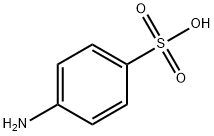
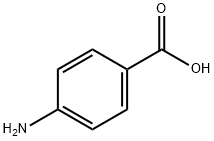

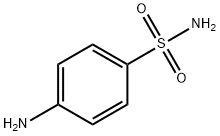
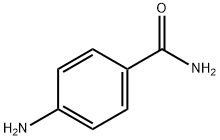
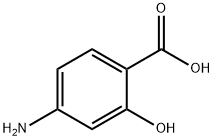
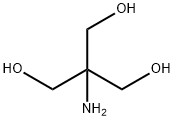
You may like
-
 4-Aminophenol 98%View Details
4-Aminophenol 98%View Details -
 4-Aminophenol 98%View Details
4-Aminophenol 98%View Details -
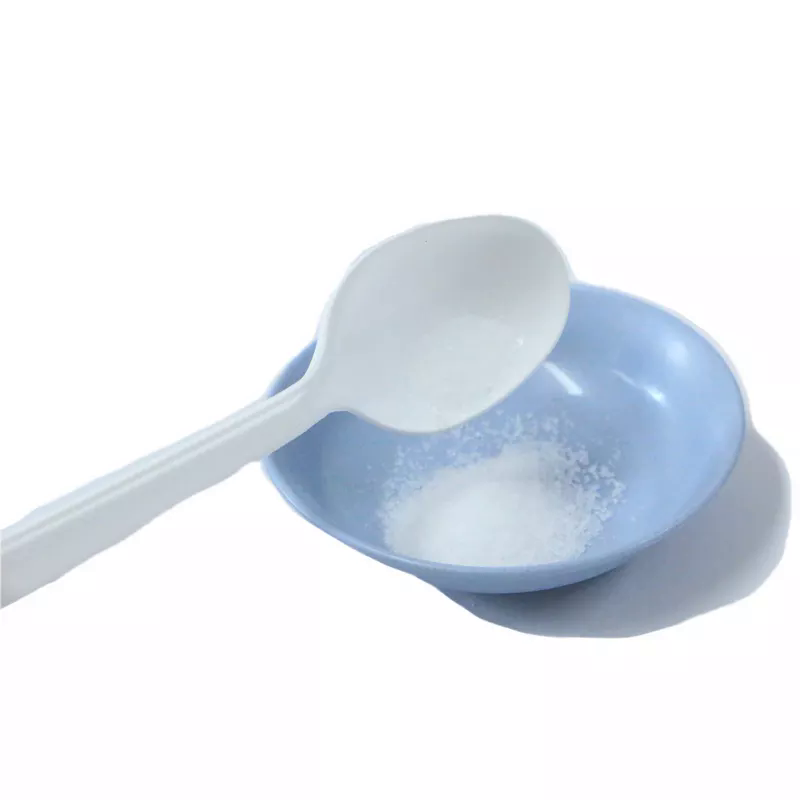 123-30-8 98%View Details
123-30-8 98%View Details
123-30-8 -
 Aminophenol 99%View Details
Aminophenol 99%View Details -
 4-Aminophenol CAS 123-30-8View Details
4-Aminophenol CAS 123-30-8View Details
123-30-8 -
 4-Aminophenol CAS 123-30-8View Details
4-Aminophenol CAS 123-30-8View Details
123-30-8 -
 Industrial Grade Para Amino Phenol, Purity: 100%View Details
Industrial Grade Para Amino Phenol, Purity: 100%View Details
123-30-8 -
 4-Aminophenol CAS: 123-30-8View Details
4-Aminophenol CAS: 123-30-8View Details
123-30-8
